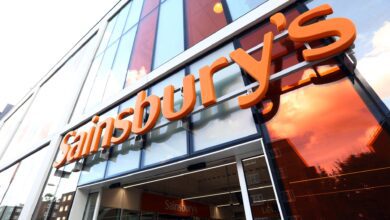How can retail companies prepare for a more scrupulous festive season?
With retail companies expecting a cash-strapped consumer based, how can they plan to maximise their festive season trading. Consumers look set to be more attentive to the deals and discounts that accompany the festive season

Register to get 1 free article
Reveal the article below by registering for our email newsletter.
Want unlimited access? View Plans
Already have an account? Sign in
After two years of Covid-impacted festive periods, any hopes that the retail industry had for a return to normal in 2022 has been thwarted by the cost-of-living crisis. Springboard has recently forecast that footfall across all UK retail destinations will decline on a month to month basis by -4.9% in September, by -2.5% in October and by -0.3% in November, but it will then increase from November to December by +6%.
Diane Wehrle, insights director at Springboard, warned that while footfall in December is expected to be 4.2% higher than 2021, “this year the drop in footfall will be more severe than in the same months pre-2019 due to consumers’ fears over the impact of the rise in energy costs expected in October on their household budgets.”
Richard Lim, the chief executive of the Retail Economics consultancy, said it is “inevitable” that consumers are going to cut back over Christmas and the wider festive period as “there are just so many headwinds facing consumers at the moment”.
Research released by KPMG showed how the rising cost of living has impacted household budgets so far this year, and the steps consumers are taking to manage rising prices. It surveyed 3000 UK consumers of varying household incomes, finding that essential household costs (food, energy, fuel, mortgage or rent) have risen by an average of £145.50 per month compared with when 2022 began.
With retail companies expecting a cash-strapped consumer based, how can they plan to maximise their festive season trading. Consumers look set to be more attentive to the deals and discounts that accompany the festive season.
Springboard predicts an increased focus on Black Friday, with footfall in November likely to be mitigated by shoppers seeking to use discounts “to buy Christmas presents with the hope of outrunning inflation”.
By operating on the assumption that more shoppers than usual will be doing the bulk of their shopping within discount initiatives, retail companies can tailor their approach. Digital River chief revenue officer Ted Rogers suggested that brands may struggle if they don’t respond to the cost-of-living crisis “strategically”, saying “It is clear that UK consumers will be making cutbacks this Christmas”.
Furthermore, shoppers look set to do a higher percentage of their shopping online, with a report by Opinium and Digital River revealing that 29% of UK online shoppers say they find it easier to track online prices compared to 19% who think in-person prices are easier to track.
Rogers adds that “It is not all doom and gloom, as the research shows that shoppers are still keen to spend online and are more likely to do so if offered more support from brands, including a frictionless digital experience. Retailers should offer reasonable delivery prices and extra perks such as vouchers to entice customers.”
To take advantage, when asked what would be most helpful for retailers to help with surging costs, 48% said free of reduced delivery feed, 38% said more vouchers and options, while 31% said ways to compare prices with other retailers. It’s clear that shoppers will be more diligent and price-aware than ever this winter, so for brands and retailers to avoid being caught out they must adapt to shifts in consumer trends and provide increased transparency and flexibility, or risk being left behind by those that do.







